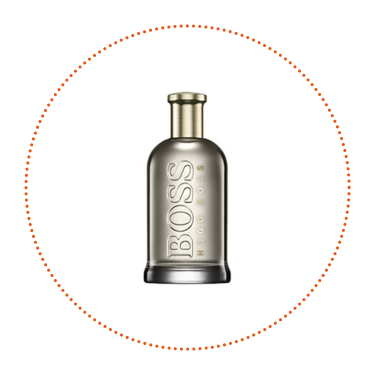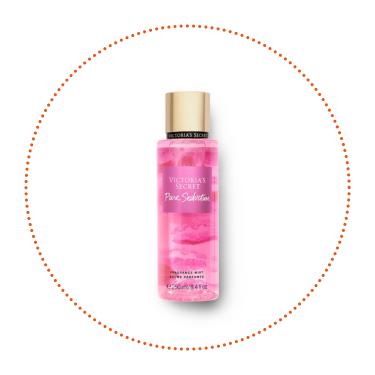The Science Behind How Perfumes Work with Your Body Chemistry
Perfumes are complex blends of aromatic ingredients designed to interact uniquely with each person’s body. How a fragrance smells on you depends on factors like skin type, body temperature, and pH levels, which influence its scent evolution and longevity. Perfume notes—top, heart, and base—unfold at different stages, creating a dynamic scent experience. Because everyone’s body chemistry is distinct, a fragrance can smell slightly different on each person. Understanding these interactions helps in choosing a perfume that works best for you.
How Your Body Chemistry Affects Perfume Longevity and Sillage
Your body’s unique chemistry significantly impacts how a perfume smells, how long it lasts, and how far its scent travels (sillage). Individual factors like body temperature, skin moisture, and natural oils influence how quickly the fragrance notes evaporate and evolve. Higher body temperatures amplify fragrance diffusion, making it smell stronger but fade faster. Well-moisturized or oily skin tends to retain fragrance molecules better, resulting in improved longevity and a more balanced scent experience.
pH Levels and Skin Type
The pH level of your skin—whether it's slightly acidic or alkaline—can alter the way perfume notes develop. On acidic skin, certain notes may smell sharper or fresher, while alkaline skin can enhance sweet or warm notes. This variance explains why the same perfume can smell different on two people. To find the best match, it’s important to test a fragrance directly on your skin.
Skin Moisture and Oiliness
The moisture level and oiliness of your skin also affect how long a perfume lasts. Oily skin helps bind fragrance molecules, enhancing both longevity and projection. In contrast, dry skin causes perfume to evaporate faster, resulting in a shorter-lasting scent. To improve perfume performance on dry skin, using unscented moisturizers or oils before applying fragrance is recommended.
Top, Heart, and Base Notes: How They Evolve on Your Skin
Perfumes are composed of three types of notes—top, heart, and base—that unfold in distinct stages as they interact with your skin. When applied, body heat and oils help release these notes in succession. Top notes create the initial impression, heart notes form the essence of the fragrance, and base notes provide depth and longevity. The way these notes interact with your body chemistry determines how a perfume smells over time.
Top Notes and Initial Impression
Top notes are the first scents you notice when applying perfume. These volatile molecules evaporate quickly, lasting only a few minutes to half an hour. They provide the initial burst of freshness or brightness and set the tone for the fragrance. Common top notes include citrus, herbs, and light florals. Due to their fleeting nature, they are designed to captivate immediately.
Heart Notes as the Core of the Fragrance
Heart notes, also known as middle notes, emerge once the top notes fade. They form the core of the fragrance, lasting for several hours. Heart notes are typically more complex and balanced, creating the true character of the perfume. They often include floral, fruity, and spicy elements. This stage of the scent bridges the transition from the initial impression to the deeper base notes.
Base Notes and Longevity
Base notes anchor the fragrance and provide depth, richness, and longevity. These heavier molecules are the last to appear and can last for hours, sometimes even all day. They are typically warm, woody, or musky scents that linger close to the skin. Base notes are crucial for a long-lasting perfume experience, as they help stabilize the lighter top and heart notes.
Factors That Influence How Perfumes Smell on You
Several factors influence how a perfume smells and performs on your skin. These include internal factors like diet and hormones, as well as external factors like climate and environment. Each of these elements interacts with your body chemistry, altering the way a fragrance develops and lasts.
Diet and Hormones
Your diet and hormone levels can subtly affect how perfumes smell on your skin. Foods rich in spices, garlic, or fat can influence your natural scent, which, in turn, alters the fragrance. Hormonal changes, such as during pregnancy or stress, can also affect body chemistry and make perfumes smell different from usual.
Climate and Environment
The climate and environment where you wear a perfume greatly impact its performance. In warm or humid weather, perfumes tend to evaporate faster, causing top notes to fade quickly and heart notes to appear sooner. In contrast, colder weather slows down the evaporation process, allowing the scent to last longer.
Tips for Choosing the Right Perfume
Choosing the right perfume involves understanding how it interacts with your body chemistry. Here are essential tips to help you select a fragrance that suits you:
Try Before You Buy
- Always test perfumes on your skin, not just on blotter strips.
- Spray the fragrance on pulse points (wrists, neck) and wear it for a few hours to see how it evolves.
- Observe how the top, heart, and base notes develop to ensure it complements your natural scent.
Consider Layering Scents
- Use unscented or lightly scented moisturizers to help lock in the fragrance and increase longevity.
- Layer complementary scented products (e.g., matching body lotions or oils) for a richer, more personalized scent.
- Experiment with combining different perfumes to create a unique signature scent.
Match Perfume to Your Lifestyle and Environment
- Select lighter, fresher scents for daytime or warmer climates.
- Choose deeper, richer fragrances for evening wear or colder weather.
- Consider testing perfumes in the conditions where you’ll typically wear them to gauge their true performance.
By following these tips, you can find a perfume that works harmoniously with your body chemistry and suits your lifestyle.
Conclusion
Perfumes are more than just pleasant scents—they are personal expressions influenced by your unique body chemistry. Factors like skin type, pH levels, and lifestyle play a significant role in how a fragrance smells, lasts, and evolves on your skin. By understanding how perfumes work and experimenting with different scents, you can discover fragrances that truly complement you. Remember to test perfumes thoroughly and consider layering techniques for enhanced longevity. Embrace the journey of finding your signature scent and enjoy the art of fragrance.










Leave a comment